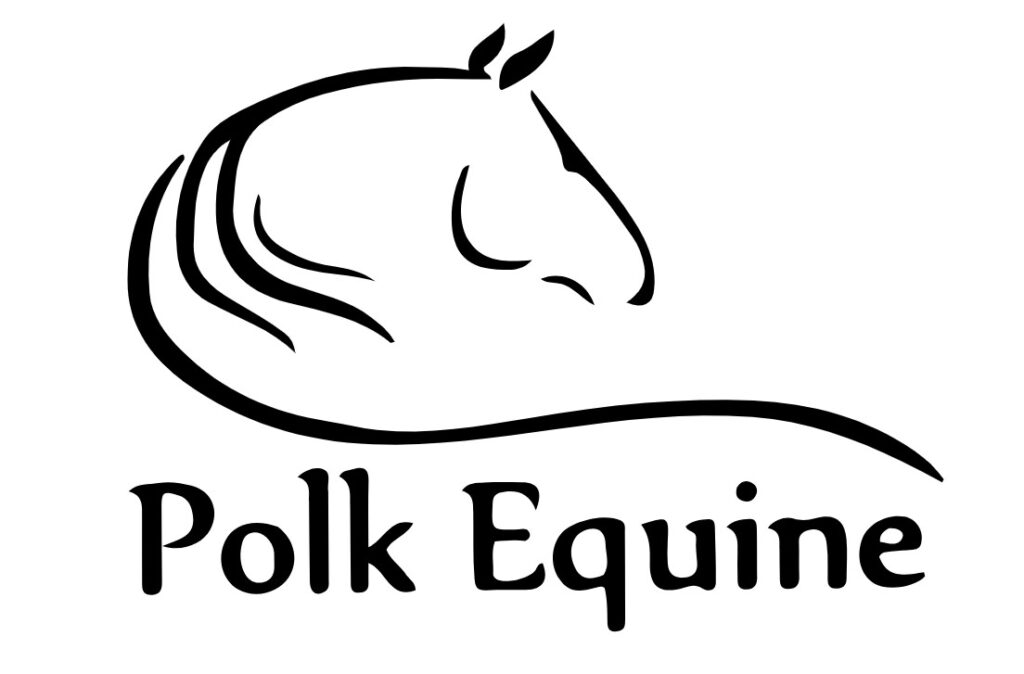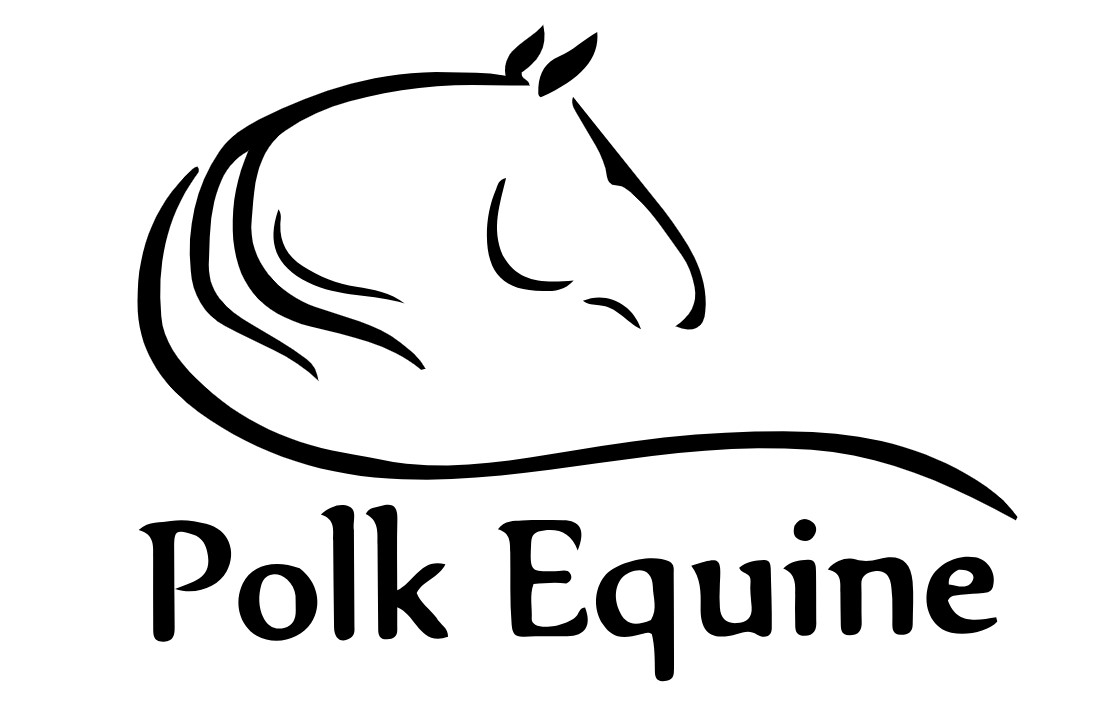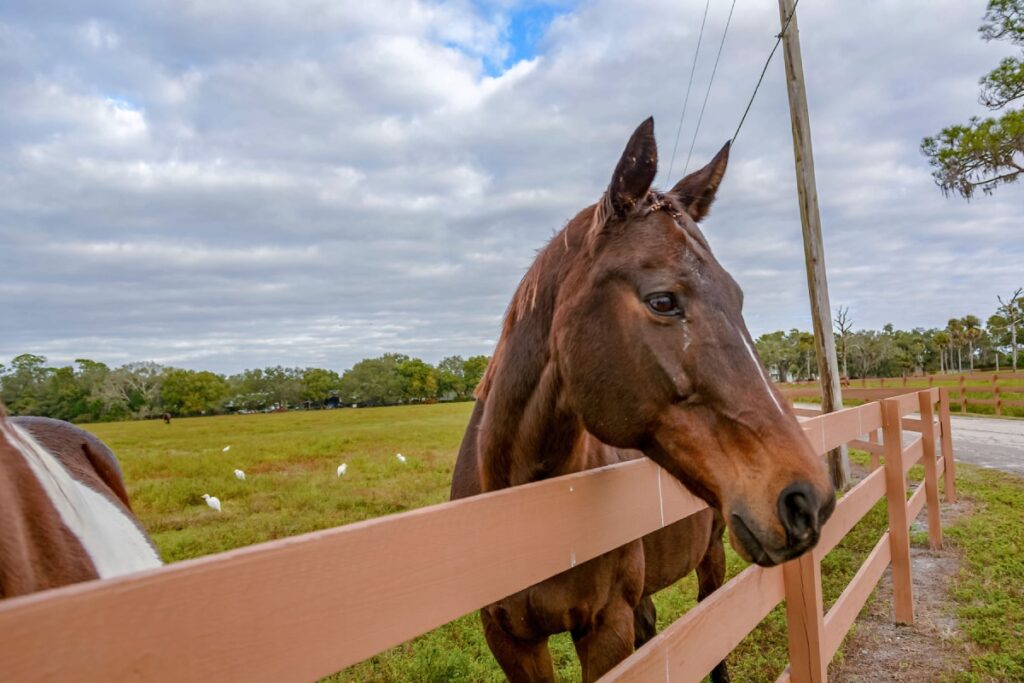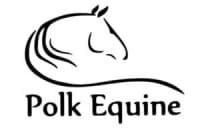Florida has its unique challenges for horses. A combination of the climate, humidity, wet ground, insects and typical management practices can expose Florida’s horse population to certain diseases and illnesses. These problems include the following list:
- Insect borne diseases.
Mosquitos carry viruses such as West Nile Virus, Eastern Equine Encephalitis and Western Equine Encephalitis. These viruses are most often fatal to horses. The mosquito population is a year-round problem in Florida so horses should have vaccination boosters every 6 months to keep their immunity strong. Insect control that includes fly spray, bug sheets and fans can help minimize their exposure to mosquitos and other insects. - Heat stress
Florida’s high temperatures and equally high humidity levels can lead horses to become rapidly dehydrated and develop heat exhaustion/stress. In some cases, this combination can cause horses to stop sweating. Ensure horses are provided with unlimited cool clean water, provide plenty of shade and minimize your horse’s workload during the hottest parts of the day. If your horse is not sweating, this is a serious problem, contact your veterinarian to discuss possible treatments. - Skin issues
Warm and wet conditions can lead to the development of a skin condition called rain rot. This is a bacterial infection that thrives in wet dirty hair. It can be prevented with regular grooming and shelter from wet weather.
Another common problem is insect related skin allergies. Many horses are allergic to Florida’s bugs and become very itchy. Contact your veterinarian because medication is often needed. - Laminitis
Laminitis is a severe lameness that results in a horse shifting its weight to the hind feet and not wanting to walk. While there are numerous factors that can lead to laminitis, lush green grass is a major concern especially in horses that are not accustomed to eating it. - Colic
Colic has many causes but the most common causes in Florida are dehydration and sand. Dehydration predisposes them to developing impactions. Feeding on the ground or living in a sandy field or paddock predisposes them to sand impactions. There are steps such as providing fresh water or flavored water and feeding off the ground that can reduce the risk of these types of colic.
Florida presents its own management concerns for horse owners but remember preparation is key. Chat with your veterinarian about any preventative measures you can take to ensure your horse is as safe as possible.




